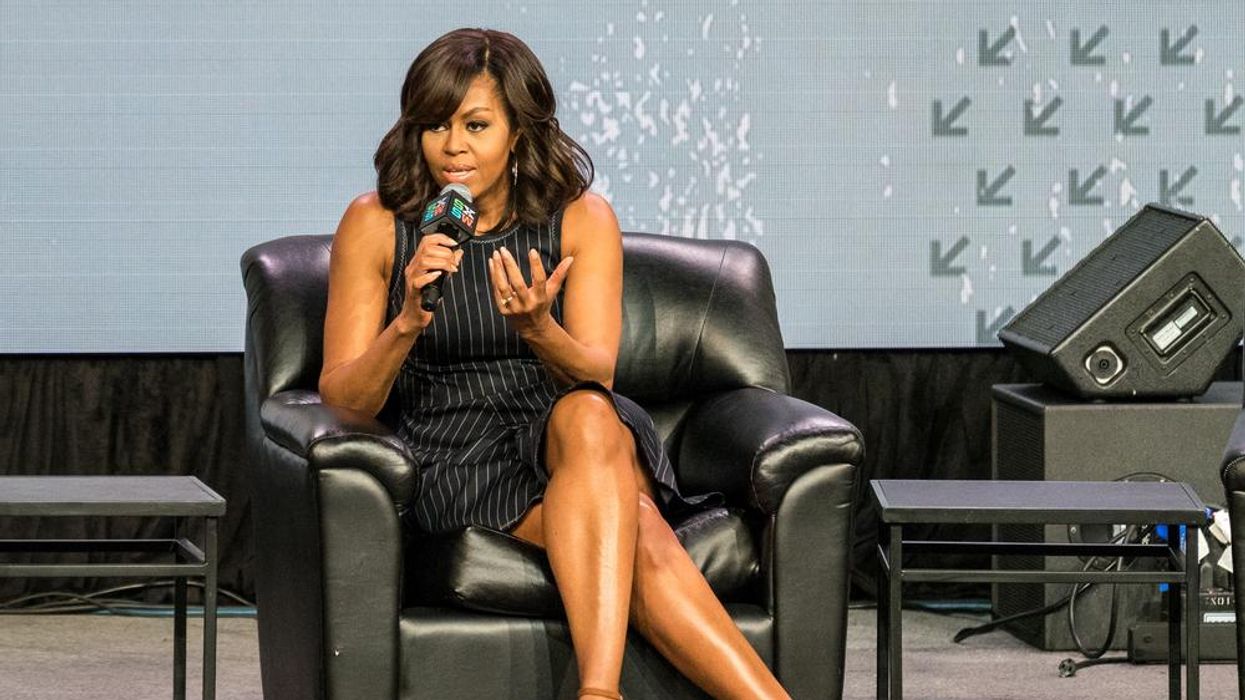Former First Lady Michelle Obama has revealed that she wanted to wear her hair in braids when she was in the White House, but didn't believe the American people were ready for natural Black hairstyles.
At the Washington DC stop on the publicity tour for Obama's most recent book, "The Light We Carry: Overcoming in Uncertain Times," Obama reflected on her husband's time in the Oval Office, and how Americans were “just getting adjusted” to a Black president and his family.
At the Warner Theatre on Tuesday, Obama told host Ellen DeGeneres that the 2014 uproar over her husband's tan suit persuaded her not to change her hairstyle so drastically while in office.
She offered a prediction of what the press would say about her: “Remember when she wore braids? Those are terrorist braids! Those are revolutionary braids!”
Whereas Obama preferred to wear her hair long, she opted instead to cut it short and straighten it so that her husband's administration could focus on policy instead. She said her mindset at the time was: “Nope, they’re not ready for it. Let me keep my hair straight, let’s get health care passed.”
Obama emphasized that even as a First Lady, she struggled with the dilemma many Black women experience over whether or not to conform to white, Eurocentric beauty standards and straighten her hair, or to wear it in the healthy and safe way she preferred.
“We deal with it — the whole thing about, ‘Do you show up with your natural hair?’” she explained.
Discrimination based on Black women's natural hairstyles has been an ongoing issue, with the House of Representatives passing the Crown Act just this year, which protects against restrictions and regulations on hair in styles such as "tightly coiled or tightly curled, locs, cornrows, twists, braids, Bantu knots, and Afros.”
While the bill is still in the Senate, 19 states have passed legislation protecting natural hair, with Alaska being the most recent. California was the first, passing their original “Creating a Respectful and Open World for Natural Hair" (Crown) law in 2019.
Despite these improvements, Black employees still face biases in the workplace over their hair. Minda Harts, who runs a career development company for women of color, told The Washington Post: “These unconscious and conscious biases keep us from even having the opportunity to have a seat at the table. We haven’t even had the chance to introduce ourselves, and there [are] these assumptions of unprofessionalism."
She continued: “I’ll be honest with you: I wear my hair straight probably 99 percent of the time because, being in corporate America, I’ve seen how clients who have braids and natural hairstyles can be looked upon.”
- Michelle Obama Felt Sense of Responsibility to Represent Black Community in White House Years | AdvocateChannel.com ›
- Black Student Suspended Over Hairstyle, Even After Anti-Discrimination Law ›
- Kansas School Forces Native American Child to Cut His Hair ›


















































